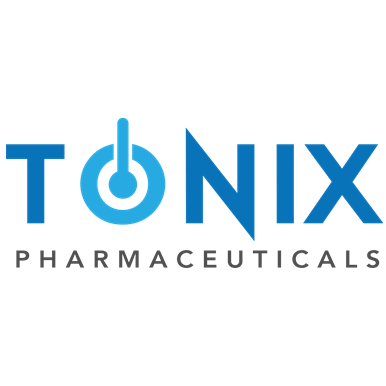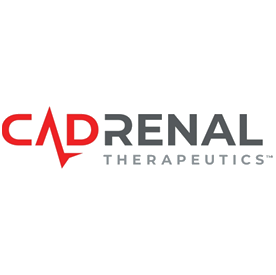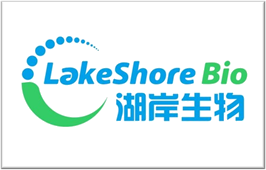Research News and Market Data on TNXP
On track to submit NDA in second half 2024 for TNX-102 SL for fibromyalgia; completed successful pre-NDA meetings with FDA in second quarter 2024
FDA granted Fast Track designation for TNX-102 SL for fibromyalgia
Commercial planning continues for U.S. launch of TNX-102 SL, a potential new first-line, centrally-acting, non-opioid analgesic for the management of fibromyalgia
U.S. Department of Defense contract awarded for up to $34 million over 5 years to develop a broad-spectrum antiviral drug
World Health Organization (WHO) recently declared spread of mpox in multiple African countries a public health emergency of international concern – Tonix’s TNX-801 is an mpox vaccine in development which protects animals against lethal challenge of monkeypox virus
CHATHAM, N.J., Aug. 19, 2024 (GLOBE NEWSWIRE) — Tonix Pharmaceuticals Holding Corp. (Nasdaq: TNXP) (Tonix or the Company), a fully-integrated biopharmaceutical company with marketed products and a pipeline of development candidates, today announced financial results for the second quarter ended June 30, 2024, and provided an overview of recent operational highlights.
“In the second quarter of 2024, we made significant progress advancing our New Drug Application (NDA) and market access strategy for TNX-102 SL (cyclobenzaprine HCl sublingual tablets),” said Seth Lederman, M.D., Chief Executive Officer of Tonix. “We are working diligently on the regulatory submission and are pleased to have been granted Fast Track designation by the U.S. Food and Drug Administration (FDA) and to be in alignment with the agency regarding the content of our proposed NDA package. Fast Track is designed to facilitate the development and expedite FDA review of important new drugs to treat serious conditions and fill an unmet medical need. We are hopeful that TNX-102 SL can be the first new drug to treat fibromyalgia in more than 15 years.”
Dr. Lederman continued, “Additionally, we continue to advance other key pipeline candidates through a capital efficient strategy, including TNX-4200, our broad-spectrum antiviral program for which we were awarded up to $34 million over five years from the U.S. Department of Defense (DoD) to advance its development.”
Recent Highlights – Key Product Candidates*
Central Nervous System (CNS) Pipeline
TNX-102 SL (cyclobenzaprine HCl sublingual tablets): a centrally-acting, non-opioid, analgesic taken once-daily at bedtime for the management of fibromyalgia.
- In July 2024, the FDA granted Fast Track designation to TNX-102 SL for the management of fibromyalgia. The designation validates that fibromyalgia is a serious condition and that TNX-102 SL has the potential to address this unmet medical need. The Company continues to guide for submission of the NDA for TNX-102 SL in the second half of 2024 which would allow for a potential FDA approval in 2025.
- In July 2024, Tonix announced that, based on the new definition of Long COVID by the U.S. National Academies of Sciences, Engineering and Medicine (NASEM), fibromyalgia is a ‘diagnosable condition’ in people suffering from Long COVID. The Company believes that diagnosing fibromyalgia in Long COVID patients will increase the potential market for TNX-102 SL following approval as compared to market estimates from before the COVID-19 pandemic.
- During the second quarter, Tonix successfully completed two positive pre-NDA meetings with the FDA for TNX-102 SL for the management of fibromyalgia. The first, with minutes announced in June 2024, was a Type B Chemistry, Manufacturing, and Controls (CMC) meeting to seek alignment and agreement with the FDA on key CMC topics to support the planned NDA submission for TNX-102 SL. Based on formal meeting minutes, the Company believes it is aligned with the FDA on proposed drug substance and drug product commercial specifications, shelf life assignment, manufacturing and commercial drug packaging. At the second pre-NDA meeting announced in July 2024, the Company and the FDA aligned on nonclinical, clinical pharmacology and clinical matters and agreed that the proposed data package is sufficient to support the NDA submission.
- In June 2024, at the American Society of Clinical Psychopharmacology (ASCP) meeting the Company presented new, additional data on TNX-102 SL, highlighting improvement in depressive symptoms as measured by the Beck Depression Inventory-II (BDI-II) as well as improvements in anxiety, memory and energy items on the Fibromyalgia Impact Questionnaire-Revised (FIQR). Depression was frequent among patients enrolled in the Phase 3 RESILIENT study, as ~47% reported experiencing depression within the past six months upon fibromyalgia diagnosis and ~25% of the intent-to-treat (ITT) population had experienced a lifetime major depressive episode (MDE). However, by Week 14 of the trial, the total BDI-II score in the TNX-102 SL group improved over placebo with a nominal p-value of 0.005 and an effect size of 0.27. On the FIQR, exploratory analyses uncorrected for multiplicity demonstrated improvement in the TNX-102 SL group over placebo in depression (p < 0.001), anxiety (p = 0.001), sensitivity (p = 0.020), memory problems (p = 0.001) and energy (p < 0.001). TNX-102 SL was well tolerated and the most common adverse events were transient sensations in the mouth corresponding with the disintegration of the tablet under the tongue. Together these findings provide further support that TNX-102 SL has broad-spectrum activity against fibromyalgia symptoms and may improve fibromyalgia at the syndromal level.
- EVERSANA® Life Science Services, LLC, a leading provider of commercialization services to the global life sciences industry, completed the initial phase of an assessment of the U.S market opportunity for TNX-102 SL. Tonix had previously announced that EVERSANA was selected to support the launch strategy and commercial planning of TNX-102 SL. Specifically, EVERSANA is working with Tonix to assess the fibromyalgia landscape and help plan an efficient go-to-market strategy. EVERSANA conducted primary research, analyzed potential market size, surveyed currently marketed treatment options and their market shares and interviewed physicians for feedback regarding the currently prescribed treatments and their interest in TNX-102 SL as a potential new treatment option. This physician feedback demonstrated high levels of dissatisfaction with currently prescribed drugs, a high unmet need for their fibromyalgia patients, and high levels of interest in TNX-102 SL’s favorable activity and tolerability profile. Further analysis showed that addictive opioids are prescribed more frequently than the currently approved drugs following fibromyalgia diagnosis. Physicians also indicated they would intend to use TNX-102 SL in 40% of their fibromyalgia patients.1
TNX-102 SL for the treatment of acute stress reaction (ASR) and acute stress disorder (ASD), and prophylaxis against development of posttraumatic stress disorder (PTSD)
- In May 2024, Tonix announced a plan for a Phase 2, investigator-initiated OASIS trial, designed to examine the safety and efficacy of TNX-102 SL in treating Acute Stress Disorder (ASD) after motor vehicle collision. The trial is sponsored by the University of North Carolina Institute for Trauma Recovery and supported by a $3 million contract from the DoD, which was awarded in September 2023. TNX-102 SL will be evaluated for the reduction in severity of acute stress reaction (ASR) and the frequency of acute stress disorder (ASD) and posttraumatic stress disorder (PTSD) in civilians after a motor vehicle collision. Previous trials of TNX-102 SL showed that it reduced military PTSD symptoms within two weeks while evidencing similar favorable tolerability as in fibromyalgia patients.
- Tonix expects to enroll the first patient in the Phase 2 OASIS trial in the third quarter of 2024.
TNX-1300 (recombinant double mutant cocaine esterase): biologic for life-threatening cocaine intoxication
- Tonix expects to initiate a Phase 2 clinical study of TNX-1300 for the treatment of cocaine intoxication in emergency rooms in the third quarter of 2024. In 2022, Tonix was awarded a Cooperative Agreement grant from the National Institutes of Health (NIH)’s National Institute of Drug Abuse (NIDA) to support development of TNX-1300.
- TNX-1300 has been granted Breakthrough Therapy designation by the FDA.
TNX-1900 (intranasal potentiated oxytocin): small peptide in development through investigator-initiated studies for adolescent obesity, binge eating disorder (BED), bone health in autism and social anxiety disorder (SAD).
- TNX-1900 continues to be studied in four ongoing investigator-initiated Phase 2 studies. There are three studies at Massachusetts General Hospital: the POWER study for the treatment of adolescent obesity, the STROBE study for the treatment of BED, and the BOX study for the treatment of bone health in pediatric autism. In addition, Tonix is conducting an investigator-initiated study of TNX-1900 for the treatment of SAD at the University of Washington.
Rare Disease Pipeline
TNX-2900 (intranasal potentiated oxytocin): small peptide for the treatment of Prader-Willi syndrome (PWS)
- In March 2024, Tonix announced that it received Rare Pediatric Disease designation from the FDA for TNX-2900 for the treatment of PWS. Tonix has an investigational new drug (IND) to support clinical development of TNX-2900 to treat PWS in children and adolescents, including a planned Phase 2, dose-finding study involving approximately 36 PWS patients. TNX-2900 for the treatment of PWS was granted Orphan Drug designation by the FDA in 2022. PWS is a rare genetic disorder which causes cognitive and behavioral symptoms including pathological over-eating in childhood, which leads to severe metabolic sequelae in adolescence and adulthood.
Immunology Pipeline
TNX-1500 (anti-CD40L Fc-modified humanized monoclonal antibody): third generation anti-CD40L monoclonal antibody for prophylaxis of organ transplant rejection and treatment of autoimmune disorders.
- The first proposed indication for TNX-1500 is prophylaxis of organ rejection in adult patients receiving a kidney transplant; but multiple additional indications are possible, including autoimmune diseases. Preclinical studies have shown that TNX-1500 maintains the activity of first-generation monoclonal antibodies (mAbs), yet with reduced risk of thrombotic complications.2-4 Modeling studies from animal pharmacokinetic data2 predict a half-life of greater than three weeks for TNX-1500 in humans, which supports a monthly i.v. dosing regimen5,6. This analysis together with TNX-1500’s activity and tolerability in animals, suggests that the protein engineering of TNX-1500’s Fc region has achieved its design goals.
- In June 2024, at the American Transplant Congress 2024, Tonix announced data demonstrating the combined use of TNX-1500 and anti-CD28 monoclonal antibody, VEL-101 is associated with durable protection and graft survival and function in a nonhuman primate model. Further data demonstrated that TNX-1500 has promise to prevent rejection of 9-, or 10-gene-edited (GE) pig hearts.7,8 All research has been directed by the faculty of the Center for Transplantation Sciences at Massachusetts General Hospital.
- Tonix completed the clinical stage of its Phase 1 single ascending dose study of TNX-1500 in healthy volunteers. The primary objectives of the study are to assess the safety, tolerability, pharmacokinetics and pharmacodynamics of intravenous TNX-1500. This first-in-human study is intended to support dosing in a planned Phase 2 trial in kidney transplant recipients.
Infectious Disease Pipeline
TNX-4200 (orally available CD45 antagonist), TNX-3900 (cathepsin inhibitor), TNX-4000 (glycan-targeted biologic)
- Tonix is developing potential broad-spectrum antiviral drugs in three programs: CD45-targeted therapeutics (TNX-4200), cathepsin inhibitors (TNX-3900) and viral glycan-targeted engineered biologics (TNX-4000).
- In July 2024, the Company announced that the DoD’s Defense Threat Reduction Agency (DTRA) awarded it a contract for up to $34 million over five years in an Other Transaction Agreement (OTA). The objective of the contract is to develop small molecule broad-spectrum antiviral agents for the prevention or treatment of infections to improve the medical readiness of military personnel in biological threat environments. The $34 million five-year contract will help fund and accelerate the development of Tonix’s broad-spectrum antiviral program, which has the potential to reduce viral load and allow the adaptive immune system to alert the other arms of the immune system to mount a protective response. The Company’s program will focus on optimization and development of its TNX-4200 program, to develop an orally available CD45 antagonist, with broad-spectrum efficacy against a range of viral families through preclinical evaluation. The program is expected to establish physicochemical properties, pharmacokinetics, and safety attributes to support an IND submission and to fund a first-in-human Phase 1 clinical study.
TNX-801 (recombinant horsepox virus, live vaccine): potential vaccine to protect against mpox disease and smallpox.
- In June 2024, Tonix announced data at an oral keynote presentation at the Vaccine Congress 2024, detailing the company vaccine platform, including TNX-801 (horsepox, live virus) vaccine for preventing mpox (formerly known as monkeypox). TNX-801 is a live replicating attenuated vaccine based on horsepox that is believed to provide immune protection with better tolerability than modern vaccinia viruses. In the data, Tonix highlighted positive preclinical efficacy, demonstrating that TNX-801 protected non-human primates against lethal challenge with intratracheal Clade 1 monkeypox virus.9 After a single dose vaccination, TNX-801 prevented clinical disease and lesions and also decreased shedding in the mouth and lungs of non-human primates. These findings are consistent with mucosal immunity and suggest the ability to block forward transmission.
- The WHO determined that the upsurge of mpox in a growing number of countries in Africa constitutes a public health emergency of international concern, the second such declaration in the past two years called in response to transmission of the virus.
- Mpox is epidemic in Central Africa and experts fear the new Clade 1 strain may spread to the U.S.
- The company’s Good Manufacturing Practice (GMP)-capable advanced manufacturing facility in Dartmouth, MA was purpose-built to manufacture TNX-801 and the GMP suites are ready to be reactivated in case of a national or international emergency.
TNX-1800 (modified recombinant horsepox virus, live vaccine): potential vaccine to protect against COVID-19 designed to express the SARS-CoV-2 spike protein
- In June 2024, the Company announced preclinical data, demonstrating immunity and tolerability, during an oral keynote talk at the Vaccine Congress 2024.10,11 Like TNX-801, TNX-1800 is a live replicating attenuated vaccine based on horsepox that is believed to provide immune protection with better tolerability than modern vaccinia viruses. TNX-1800 was selected by the NIH’s Project NextGen for inclusion in clinical trials as part of a select group of next generation COVID-19 vaccine candidates with the intent to identify promising vaccine platforms. NIH plans to conduct a Phase 1 trial and cover the full cost, while Tonix provides the vaccine candidate.
Marketed Products – Recent Highlights
- As of April 1, 2024, Tonix completed the transition to becoming a fully integrated biopharmaceutical company. Tonix Pharmaceuticals has implemented personnel, systems and contracts required to support a commercial organization and has assumed responsibility for distribution, selling and marketing of Zembrace SymTouch® and Tosymra®, as well as supply chain, regulatory and quality control of the two products.
- In June 2024, the Company presented data at the 66th Annual Scientific Meeting of the American Headache Society (AHS) comparing real-world data with real-world usage of non-oral migraine products with the most recent AHS consensus statement. This data stressed the need for customizing treatment of migraine headaches to the needs of patients. Thus far, real world data show that conformity with the guidelines and the consensus statement have yet to be achieved but has the potential to be increased. The data show the use of non-oral drugs for treating an acute migraine attack was only 7% in 2012 and has decreased to below 4% in 2023, when the potential need for such drugs is anticipated to be a more substantial percentage of migraineurs based on epidemiological data.
TNX-102 SL has not been approved for any indication.
1EVERSANA primary physician research, May 2024; commissioned by Tonix
2Lassiter G., et al. Am J Transplantation. 2023. https://doi.org/10.1016/j.ajt.2023.03.022
3Miura S., et al. Am J Transplantation. 2023. https://doi.org/10.1016/j.ajt.2023.03.025
4Anand RP., et al. Nature. 2023:622, 393–401. https://doi.org/10.1038/s41586-023-06594-4
5Deng R., et al. Mabs. 2011. https://doi.org/10.4161/mabs.3.1.13799
6Tonix Pharmaceuticals – Data on File
7Revivicor 9-GE pigs: GalKO.β4GalNT2KO.GHRKO.hCD46.hCD55.hTBM.hEPCR.hCD47.hHO-1
8 Revivicor 10-GE pigs: GalKO.β4GalNT2KO.CMAHKO.GHRKO.hCD46.CD55.hTBM.hEPCR.hCD47.hHO-1.
9Noyce RS, et al. Viruses. 2023;15(2):356. doi:10.3390/v15020356.
10Awasthi M., et al. Viruses. 2023;15(10):2131. doi:10.3390/v15102131.
11Awasthi M., et al. Vaccines (Basel). 2023;11(11):1682. doi:10.3390/vaccines11111682.
Recent Highlights – Financial
As of June 30, 2024, Tonix had $4.2 million of cash and cash equivalents, compared to $24.9 million as of December 31, 2023. Net cash used in operations was approximately $30.5 million for the six months ended June 30, 2024, compared to $56.3 million for the same period in 2023.
Subsequent to the quarter ending June 30, 2024, Tonix received net proceeds of approximately $3.5 million in a securities purchase agreement with certain institutional and retail investors, and sold 0.8 million shares of common stock under the ATM Sales Agreement, for net proceeds of approximately $0.4 million.
Second Quarter 2024 Financial Results
Net product revenue for the second quarter 2024 was approximately $2.2 million. Net product revenue consisted of combined net sales of Zembrace® SymTouch® and Tosymra®, which were acquired from Upsher-Smith Laboratories, LLC on June 30, 2023. Cost of Sales for the second quarter 2024 was approximately $3.4 million, which included a write-down related to Tosymra and Zembrace finished goods inventory of approximately $1.7 million based on an assessment of inventory on hand and projected sales prior to the respective expiration dates.
Research and development expenses for the second quarter 2024 were $9.7 million, compared to $22.0 million for the same period in 2023. This decrease is predominantly due to decreased clinical, non-clinical and manufacturing expenses aligned with the Company’s capital efficient strategy.
Selling, general and administrative expenses for the second quarter 2024 were $7.5 million, compared to $7.0 million for the same period in 2023. The increase was primarily due to sales and marketing and the transition services expenses associated with the Company’s recently acquired marketed products offset by a decrease in financial reporting expenses.
Net loss available to common stockholders was $78.8 million, or $19.28 per share, basic and diluted, for the second quarter 2024, compared to net loss of $28.4 million, or $49.23 per share, basic and diluted, for the same period in 2023. Included in the net loss for the three months ended June 30, 2024, are non-cash asset impairment charges totaling $58.9 million. The basic and diluted weighted average common shares outstanding for the second quarter 2024 was 4,085,132 compared to 576,047 shares for the same period in 2023.
The impairment of the Tosymra and Zembrace inventory, intangibles and goodwill was driven by our delayed investment in the sales personnel required to drive growth in the business as we are focusing our cash resources to further our efforts to bring TNX-102 SL through the FDA approval process and to market. However, we believe that the benefits and long-term value proposition of the 2023 acquisition of Tosymra and Zembrace remain, in that we now have the infrastructure to be ready to manufacture and sell TNX-102 SL under an expedited timeline pending FDA approval for which we expect an FDA decision in 2025.
Tonix Pharmaceuticals Holding Corp.*
Tonix is a fully integrated biopharmaceutical company focused on transforming therapies for pain management and modernizing solutions for public health challenges. Tonix’s development portfolio is focused on central nervous system (CNS) disorders, and its priority is to submit a New Drug Application (NDA) to the FDA in the second half of 2024 for TNX-102 SL, a product candidate for which two statistically significant Phase 3 studies have been completed for the management of fibromyalgia. The FDA has granted Fast Track designation to TNX-102 SL for the management of fibromyalgia. TNX-102 SL is also being developed to treat acute stress reaction. Tonix’s CNS portfolio includes TNX-1300 (cocaine esterase), a biologic designed to treat cocaine intoxication that has Breakthrough Therapy designation. Tonix’s immunology development portfolio consists of biologics to address organ transplant rejection, autoimmunity and cancer, including TNX-1500, which is a humanized monoclonal antibody targeting CD40-ligand (CD40L or CD154) being developed for the prevention of allograft rejection and for the treatment of autoimmune diseases. Tonix also has product candidates in development in the areas of rare disease and infectious disease. Tonix recently announced the U.S. Department of Defense (DoD), Defense Threat Reduction Agency (DTRA) awarded it a contract for up to $34 million over five years in an Other Transaction Agreement (OTA) to develop TNX-4200, small molecule broad-spectrum antiviral agents targeting CD45 for the prevention or treatment of infections to improve the medical readiness of military personnel in biological threat environments. Tonix owns and operates a state-of-the art infectious disease research facility in Frederick, MD, instrumental in progressing this development. Tonix Medicines, our commercial subsidiary, markets Zembrace® SymTouch® (sumatriptan injection) 3 mg and Tosymra® (sumatriptan nasal spray) 10 mg for the treatment of acute migraine with or without aura in adults.
*Tonix’s product development candidates are investigational new drugs or biologics and have not been approved for any indication.
Zembrace SymTouch and Tosymra are registered trademarks of Tonix Medicines. All other marks are property of their respective owners.
This press release and further information about Tonix can be found at www.tonixpharma.com.
Forward Looking Statements
Certain statements in this press release are forward-looking within the meaning of the Private Securities Litigation Reform Act of 1995. These statements may be identified by the use of forward-looking words such as “anticipate,” “believe,” “forecast,” “estimate,” “expect,” and “intend,” among others. These forward-looking statements are based on Tonix’s current expectations and actual results could differ materially. There are a number of factors that could cause actual events to differ materially from those indicated by such forward-looking statements. These factors include, but are not limited to, risks related to the failure to obtain FDA clearances or approvals and noncompliance with FDA regulations; risks related to the failure to successfully market any of our products; risks related to the timing and progress of clinical development of our product candidates; our need for additional financing; uncertainties of patent protection and litigation; uncertainties of government or third party payor reimbursement; limited research and development efforts and dependence upon third parties; and substantial competition. As with any pharmaceutical under development, there are significant risks in the development, regulatory approval and commercialization of new products. Tonix does not undertake an obligation to update or revise any forward-looking statement. Investors should read the risk factors set forth in the Annual Report on Form 10-K for the year ended December 31, 2023, as filed with the Securities and Exchange Commission (the “SEC”) on April 1, 2024, and periodic reports filed with the SEC on or after the date thereof. All of Tonix’s forward-looking statements are expressly qualified by all such risk factors and other cautionary statements. The information set forth herein speaks only as of the date thereof.
Click here for full report


















